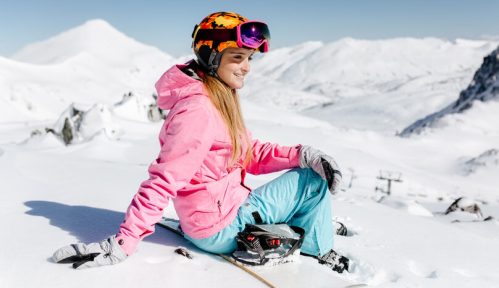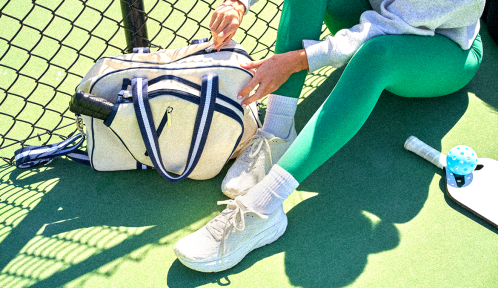Our editors independently select these products. Making a purchase through our links may earn Well+Good a commission
Whether you’ve been skiing many times or you’re about to embark on your first skiing adventure (good luck to you!), arriving dressed for the slopes is as important as preparing your body to avoid ski injuries. As tempting as it may be to copy one of the many Snow Bunny outfit ideas on Pinterest or to do your best to recreate one of Kendall Jenner’s various ensembles, it’s best to focus on how you’ll feel over how you’ll look. Since being cold is pretty much never ideal, it’s all about knowing which garments will lead to the coziest skiing (or snowboarding) experience.
Experts in This Article
Erika Northrop is a ski tester and the area manager of Christy Sports in New Mexico.
While waterproof outerwear (like the very popular Halfdays Aston Jacket or the incredibly chic Helly Hansen Women’s Cortina Insulated Ski Jacket and snowsuits (like the truly Instagrammable Tipsy Elves Women’s Retro Rainbow Snow Suit are rather obvious, as they’re what will keep your dry and comfortable out in the snow, there are other items that can play a key role in just how cozy and warm you’ll feel while zig-zagging down the mountain.
To find out what they are, we chatted with Erika Northrop, area manager for Christy Sports in New Mexico, and ski tester for Ski Magazine.
6 Essential Warm Gear Pieces, According To a Ski Instructor
Merino Wool Base Layers
While cotton is often revered for its moisture-wicking nature, Northrop says to avoid it, as the moisture it absorbs can lead to your feet becoming cold and uncomfortable. Instead, she says to choose 100 percent Merino Wool base layers.
“They are key to keeping your core warm,” she says. There are many merino wool base layers on the market, with both top and bottom options. While Northrop likes long sleeves, she recommends opting for ¾-length pants, as it keeps any seams and wrinkles out of your boots.
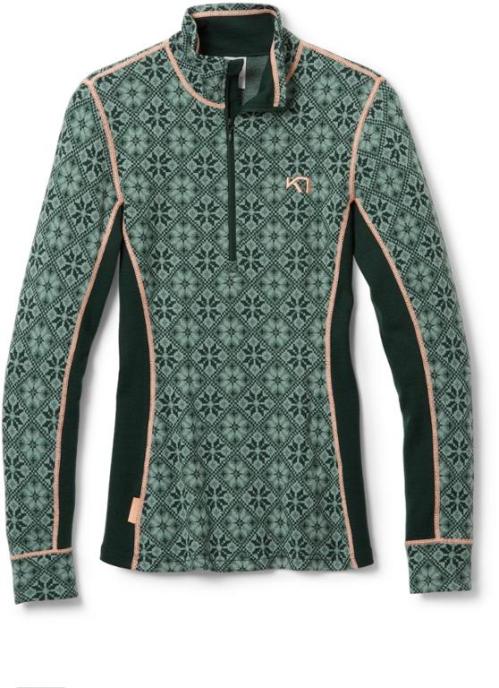
Kari Traa Rose Half-Zip Base Layer Top — $120.00
Thin Socks
While it might seem like thick, plush socks are key to keeping your feet warm on the slopes, Northrop says that opting for thinner socks is actually better. “Thin socks work best to keep feet warm and enhance performance,” she says. “It seems counterintuitive, but trust. [Thick] socks are the worst for staying warm in ski boots on cold days.”
If you’re a beginner skier, she says to look for thin socks with shin padding, as getting used to snow boots can take a while. “Pull your socks on tight with no wrinkles or folds,” she adds. “One wrinkle in a sock can ruin a ski vacation by causing bruising that will pain you for days.”

Bridgedale Ski Lightweight Socks — $29.00
Gloves or Mittens
The last thing you want is for your hands to get frigid cold while skiing (especially because frostbite is a thing). With this in mind, Northrop says to look for gloves or mittens specifically rated to keep hands warm and dry.
“They cost more but the disposable hand warmers and time inside to warm up extremities will cost you more in the long run,” she says. “I pull out my Swany Gloves on the super cold days.”
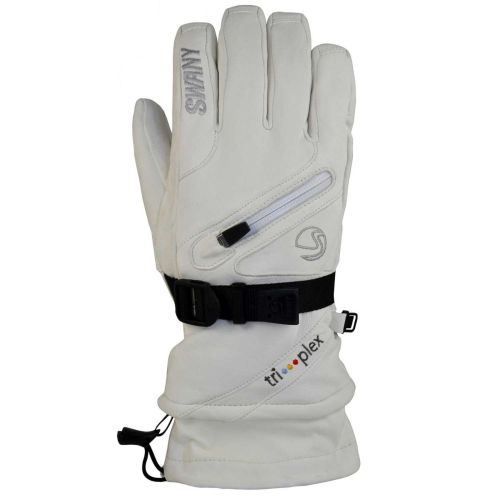
Swany X-Cell Glove Women’s — $175.00
Neck Warmer
You’ll want to keep your neck warm, too. But instead of wrapping it in a thick scarf, Northrop says to layer up on neck gaiters.
“I use a thin buff for my neck because when skiing, I can pull it up and tuck it under the nose of my goggles,” she says, noting that you want a thin buff so that you can easily breathe through it, otherwise having it over your mouth can cause your goggles to fog up. “My second neck layer is either a thick fleece or wool neck gaiter to keep any cold air from going inside my jacket—plus, it’s always nice to have an extra cozy neck.”
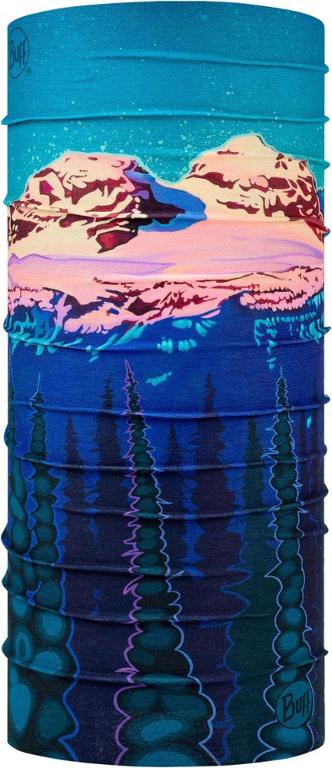
Buff Original Multifunctional Headwear — $15.00
Helmet
Helmets might seem solely for protection, but Northrop says they’re the best piece of equipment to keep your head warm, too. Pro tip: You should always wear a helmet while skiing.

Giro Avera MIPS Snow Helmet — $145.00
Run Smarter, Not Harder: Nike’s Running Shoe Finder Takes the Guesswork Out of Choosing Sneakers
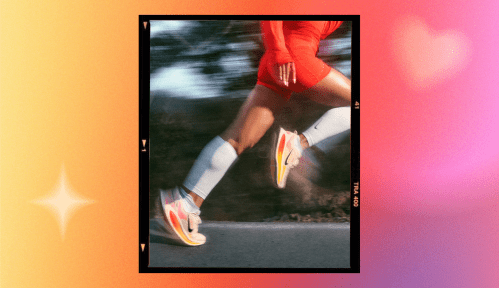
Flares! Wide-Legs! Cargos! Here Are 5 Nike Pairs to Help You Celebrate the Active-Pants Renaissance
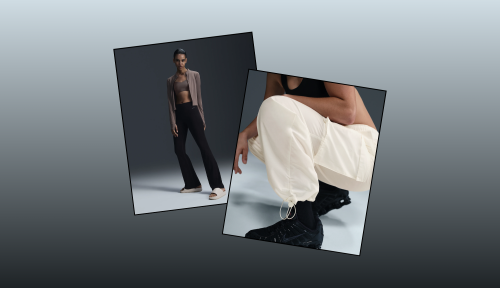
These Leggings Give You a Lymphatic Drainage Massage While You Walk—Here’s What Happened When I Tried Them
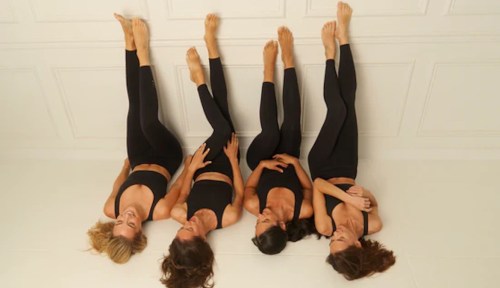
Boot and Glove Dryer
Last but not least, Northrop says to invest in a boot and glove dryer. There’s nothing worse than preparing for another day of skiing only to put on damp garments due to sweaty hands or feet from the previous day.
“You [want to] start the day off right with dry equipment,” says Northrop.
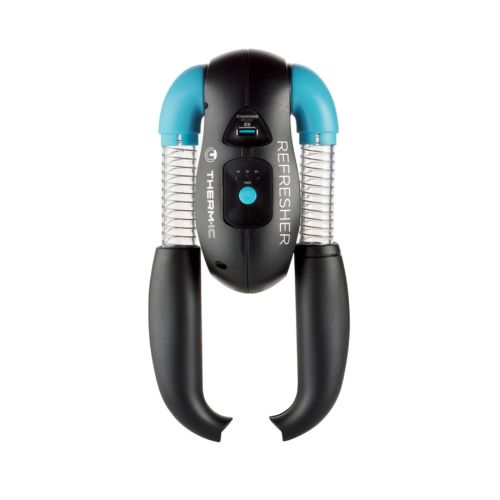
Sidas Therm-ic Refresher with USB Boot and Glove Dryer — $90.00
Need more advice? “If someone is working in a ski shop, it’s not for the money, it’s for the love of the sport,” Northrop says, noting that they’ll be able to provide the support and additional suggestions you’re looking for.
Sign up for the Well+Good SHOP Newsletter
Get exclusive deals on wellness, beauty, fitness, and food products that have been hand-picked by our editors.
Got it, you've been added to our email list.
